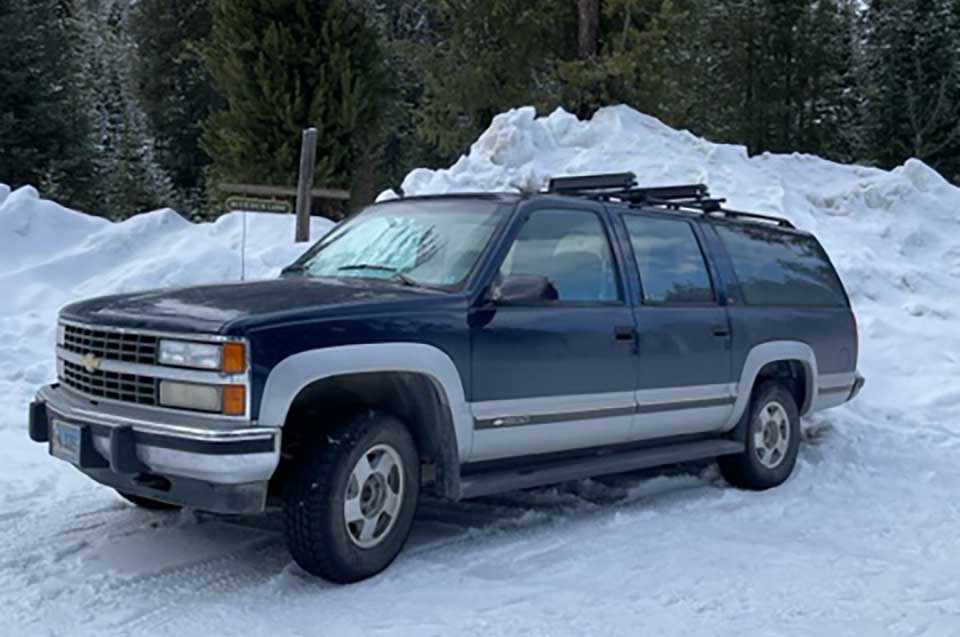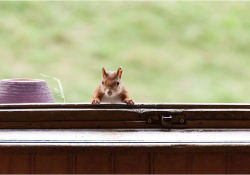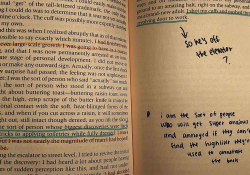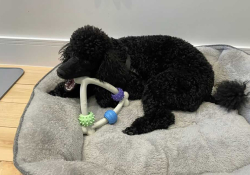Old Cars

A late winter storm and a decaying Chevy Suburban underscore the emerging fragilities of life in their seventies for a writer and her husband.
We bought the Suburban in 1993 when we built our cabin in Wyoming. We summer here. Instead of sweltering in Miami, we escape the heat. I’m not an outdoorsy person. While my husband hikes and fishes, I read and I write.
We’ve all aged the last three decades. I wear hearing aids and need a new knee. My husband has back problems, neck problems, hip problems. When he walks, he tilts.
The Suburban has also seen better days. In thirty years, it’s logged eighty-three thousand miles. The tires have been replaced. The windshield is cracked from gravelly roads and errant rocks.
Though the car has been reliable, more and more incidents are occurring. Last July, when we were driving over the pass to Idaho, the four-wheel drive gave out. We barely made it down the winding curves. Afterward, I thought for sure that we’d trade the car in. I begged my husband to trade it in. The car can’t be trusted, I cried!
Both my husband and the car have weathered ups and downs.
But Michael has grown attached. Both he and the car have weathered ups and downs. Dents and scratches. False stops and wrong turns. “Don’t be silly,” said my husband. “A new transmission, and she’ll be fine!”
Michael usually spends a week or two in Wyoming without me while he goes skiing. I hate the cold, the ice, the slick roads. But I turned seventy this year. And trust me when I say that seventy is a turning point. I feel like my shelf life is shrinking, that there’s a tattoo with my expiration date hiding under my hair. So when my husband asked me to keep him company, this time I said yes.
I feel like my shelf life is shrinking, that there’s a tattoo with my expiration date hiding under my hair.
We decided to go in March, foolishly hoping for mild weather. But the seasons out west don’t accommodate wishful thinking. Now that I’m here, I sit by the window housebound. There are no tulips, no blooming dogwoods, no sprinting in your Birkenstocks.
Instead, a Wyoming spring brings wild temperature fluctuations. In the morning our outdoor thermometer may register zero. But in the afternoon the mercury can climb to thirty-five. The snow freezes and melts. Freezes and melts.
Last night an avalanche startled me. What sounded like a ton of snow slid off our roof and crashed to the ground. My husband, God bless, could sleep through a nuclear attack. I heard a boom! Next a rumbling. Then our log walls shook. I walked up and down the stairs in my nightgown to see if our house was intact. Then the next morning, as we were heading out of our home, we opened the garage to a wall of white.
Our adventure continued. Three hours later, after the snow-and-blow guy freed us, the Suburban wouldn’t start. When we built this house, we thought it would last forever. We thought we would last forever. The man from AAA looked at the car and whistled.
“Where did you get this monster? Antiques Roadshow?”
He jumped the car with some cables. Then he took off his gloves and counted down on his fingers.
“First, you gotta run the car for thirty minutes to warm it up. But whatever you do, leave the garage door open.” Then he mimed a horrible death, wrapping his hands around his neck. “You know. Carbon monoxide poisoning. After the car’s warmed up, whatever you do don’t turn it off. If you turn it off, you’ll be back to where you started.”
Then he looked over his shoulder at the driveway. It’s a steep driveway. When we built the house, it didn’t seem very steep. But with each progressive year, it’s gotten steeper.
“Put the car in second gear,” he said. “Then, if it makes it up that incline, drive straight to town. Of course, the Chevy people may not have a battery on hand. A car this old you may have to special order.” He looked back at the car and whistled once more. “What’s this monster hold? Forty gallons?”
I glared at my husband. “Gasoline? We don’t bother with gasoline. We just shovel in coal as we go.”
While the car was warming up, my husband schlepped a bag of salt from our basement and dumped it on the driveway. A calculated amount of physical exertion always brings him joy. Too little and he feels like he has wasted a day. Too much and he’s in bed with a hot water bottle and a bucket of Advil. He took a while to dump the salt. Then, huffing and puffing, he tromped back inside.
“That should do it!” he said. “You ready to give the car a whirl?”
We’ve been married for fifty years, and somehow it works. Michael’s perpetually fearless and I’m eternally terrified. Our cabin is ten miles from the town. To get to the Chevy dealership, we’d have to navigate potholes the size of craters and ice patches like skating rinks.
As usual, I pictured the worst possible scenario. Getting stuck on the highway. Standing by the roadside in the bitter cold. But these days, in this winter of our relationship, I tread lightly.
“You sure?” I asked. Then my husband lovingly ran his hand over the hood. “Don’t worry. This baby has always gotten us where we needed to go.”
My stomach flipped. This baby has no airbags.
By the time I grabbed my coat, he was in the car making his adjustments. Putting on his driving glasses. Placing his butt on a special cushion he bought on Amazon.com.
“Come on,” he said. “It’ll be an adventure!”
Buckling up, I closed my eyes and mumbled a prayer. Meanwhile, Michael gunned the engine. Slowly, carefully, the car struggled up the hill. We heard ice crunch, gears grinding, snow spraying. Then by some miracle, we reached the top. At the summit, my husband was ridiculously happy. Buoyant. Like he had climbed Everest without a Sherpa or an oxygen pack.
“I told you we’d make it!”
I opened my eyes and exhaled. So far so good. But even though we made it out of our driveway, we still had a long way to go. The car idled while Michael rearranged himself. Then he reached into the glove box and shuffled things around. Finally, he pulled out a cassette tape. A mouth the size of a cavern hovers over the radio. He shoved the tape in and grinned.
“Man, this is great stuff. Remember this album? I love this album.”
“Helplessly Hoping” started playing. Don’t ask me what I ate for breakfast. But whenever I hear a song from my youth, I immediately know all the words.
Don’t ask me what I ate for breakfast. But whenever I hear a song from my youth, I immediately know all the words.
We started moving. Michael tapped on the steering wheel with one hand and drove with the other. “Remember when we saw Stephen Stills in Ann Arbor? We were in a coffee house. There were thirty, forty people. When was that? 1970?”
No. It wasn’t Stephen Stills. It was Neil Young. And it wasn’t 1970. It was 1969. But why spoil the moment? Instead, I swallowed the words.
The car plodded along, the songs played, and soon we were almost there. Michael glanced in the rearview mirror. There were no police cars, no sirens, nothing to draw our attention. Only David Crosby’s lyrics and a glimpse into the past.
“You know he died a few weeks ago,” said Michael. “His obituary was in all the papers. Remember how crazy he used to be?” Then he looked in the rearview mirror once more. “He was only eighty-one.”















